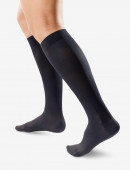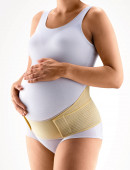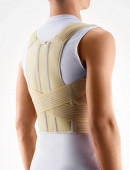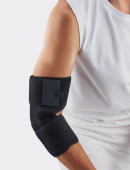Don’t lift heavy weights in order to avoid hernia – many of you might have heard this. During their lifetime, a person may develop different types of hernia. One of them is inguinal hernia.
Don’t lift heavy weights in order to avoid hernia – many of you might have heard this. During their lifetime, a person may develop different types of hernia. One of them is inguinal hernia.
What causes inguinal hernia?
Hernia is most often developed by people with an inherited weakness of connective tissue. For various reasons, these people may develop an internal rupture of the peritoneum, which most commonly causes the protrusion of different internal organs – the intestines, bladder, omentum in the so-called hernia gate: the weaker parts of the body under the skin.
The inguinal hernia presents as an easily felt bulge in the lower part of the abdomen in the inguinal region, which is especially visible, when drawing in air in the abdomen. This problem may occur to anybody, but due to anatomical features, men are at greater risk of experiencing inguinal hernia.
The most common reasons for inguinal hernia:
- lifting heavy weight or other physical effort,
- heavy cough,
- overweight,
- pregnancy for women,
- places of surgery that have not healed etc.
In specific cases there may also be situations when bilateral inguinal hernia occurs simultaneously. Unfortunately, there are no preventive measures to avoid inguinal hernia.
Sudden Pain – It Should Not Be Ignored
The first signal evidencing inguinal hernia is strong, sudden pain, most commonly in the inguinal region, but sometimes it may also be around the navel. Feeling this pain, the activities started should be stopped immediately, and the person should recline in a horizontal position. Inguinal hernia as a subcutaneous arch may be easily seen, the person touching the painful area may feel it themselves.
Reclining, the arch generated by the hernia may disappear for a period of time, and the internal organs that have slipped through the hernia gate may slip back. This may cause a false feeling that the hernia has disappeared. Yet, it is not so, and when starting any physical activities again, the subcutaneous bulge reoccurs. This means medical help should be sought, because the inguinal hernia may cause a situation dangerous to health.
Only Treatment - Surgery
The doctor may also feel the inguinal hernia easily, yet for precise diagnostics and to choose the proper treatment method, the radiological tests: ultrasonography and computer tomography, have to be performed.
The only way to heal inguinal hernia is surgery if the injury in the abdominal wall does not heal by itself. Timely surgery is recommended, in order for the hernia not to become incarcerated. In cases when such has happened, a health and life-threatening situation may occur, because blood circulation in the organs is interrupted or ceases completely, which means the adjacent tissue may die and the infection may spread.
Signs, which may indicate that an inguinal hernia is incarcerated:
- pain,
- nausea,
- weakness,
- elevated pulse,
- vomiting,
- abdominal disorders (bloating or constipation).
Inguinal hernia surgery is considered simple and minor surgery, with a minimum risk of complications. The patient may go home on the same or the next day, of course following all the doctor’s recommendations, of which one of the most important is avoiding physical effort.
Both before the surgery and during the healing period the doctor may recommend the patient to use a special bandage, consisting of two parts, which is intended for healing inguinal hernia and for the prevention of the formation of an incarcerated hernia, as well as for the prevention of post-surgery relapse. For this reason, the bandage is recommended to be used by people who may not or are not recommended to undergo surgery.
Photo by Corinne Kutz on Unsplash





